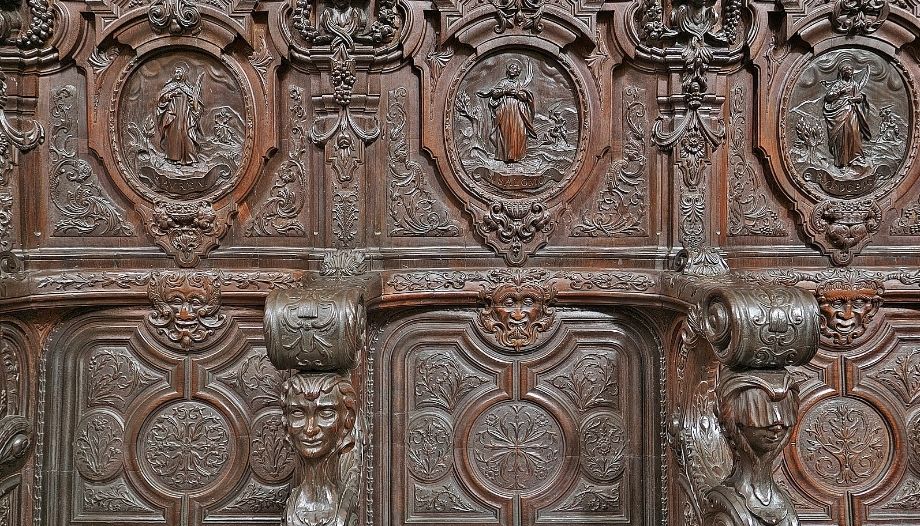Saint Áurea de Córdoba was born in Seville into a well-to-do family. Most of them were Mohammedans, but her mother, Artemia, was a Christian. She educated her in the Christian faith and the Gospels. She was the sister of the martyrs Adolphus and John, and retired to the monastery of Cuteclara after the death of her brothers. There she lived in peace until she was denounced for her faith. In one of the persecutions under the Muslims, was brought before the judge and denied the Christian faith.
But she repented, presented herself to the same magistrate and, after the trial was repeated, she remained firm in her faith, for which she was beheaded. We know her life and martyrdom from the testimony of St. Eulogius of Cordoba. The Roman Martyrology confirms that the first time she was frightened before the judge, but then she stood firm (year 856). She is remembered for her courage and unshakable faith in times of persecution.
Saint Macrina, Saint Epaphras
Today, the Catholic liturgy also commemorates Saint MacrinaShe was the elder sister of Saints Basil the Great and Gregory of Nyssa, Cappadocian fathers, and of Peter of Sebaste, bishop. Together they formed a family of saints with a profound influence on Christian doctrine and spirituality.
St. Epaphras also appears in today's saints' calendar. He was from Colossae and was a disciple of the Apostle Paul, who, during his stay in Ephesus, converted him to Christianity. The Apostle mentions him in the letters to the Colossians and to Philemon, in which he calls him "our dear companion and faithful minister of Christ", "my companion in captivity". He evangelized Colossae and other cities.








